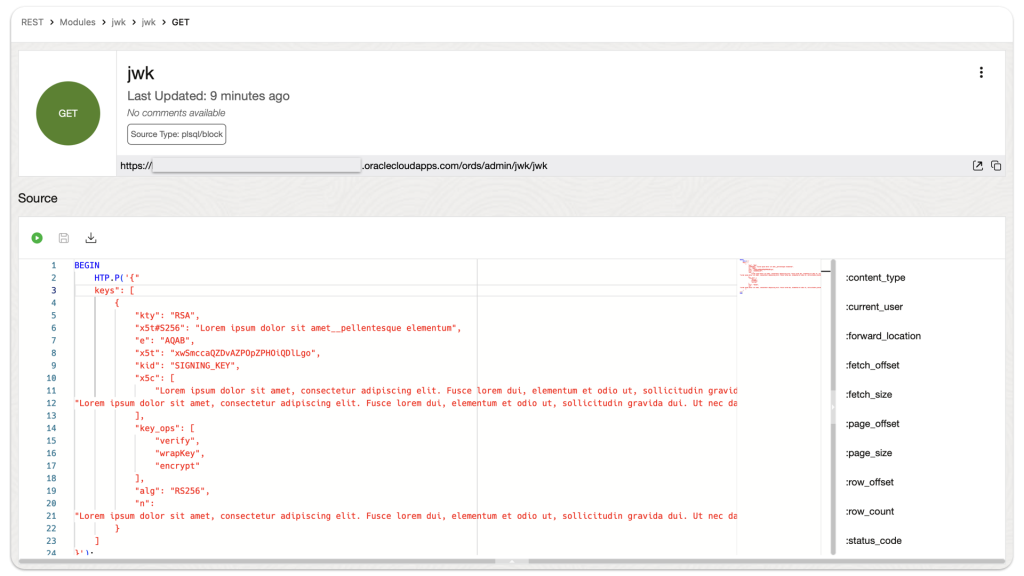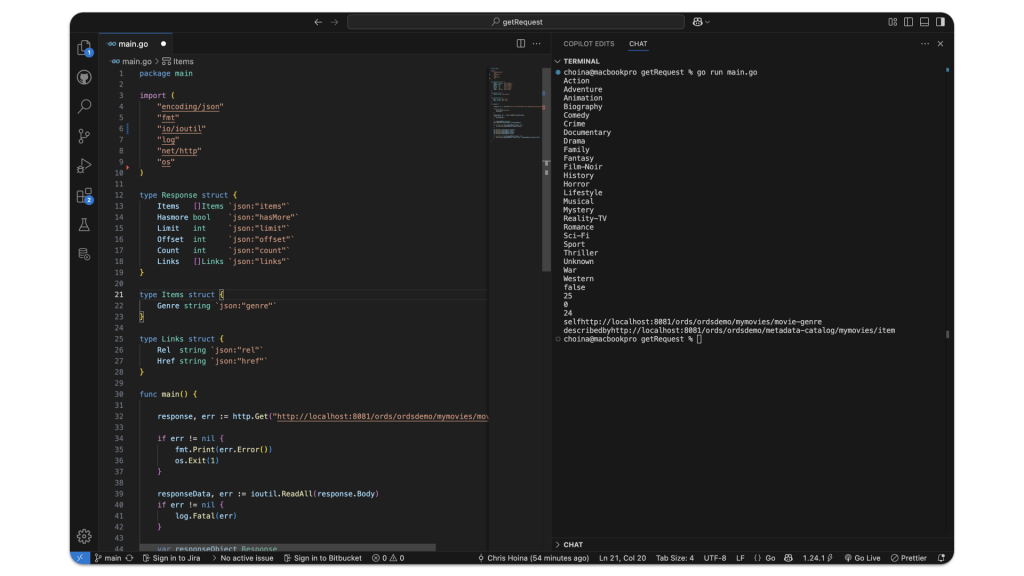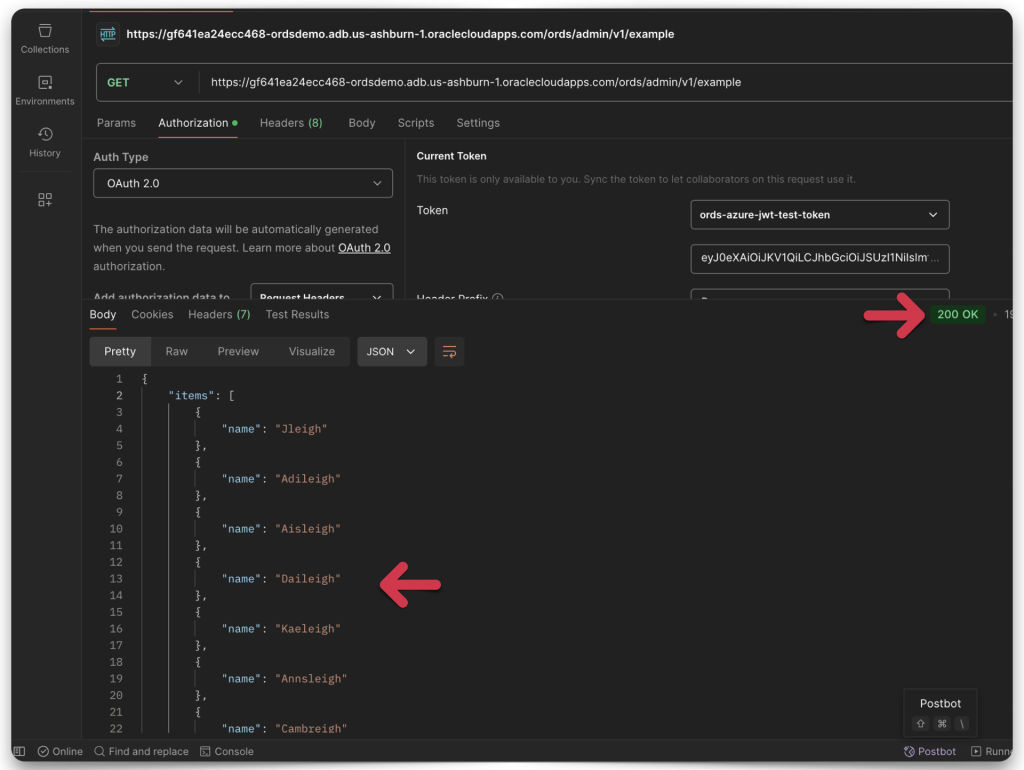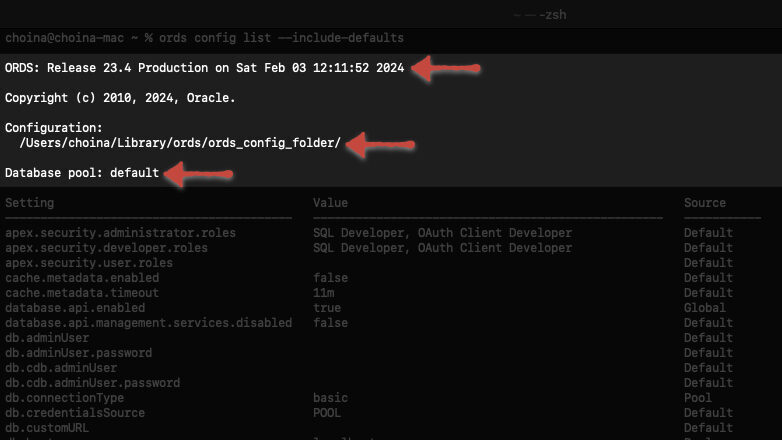
Example: an ORDS API that returns a user-configured JSON object
This actually came about from a...

ORDS as a JotForm webhook: An actual customer use case
Recently, we (one of our Support...


Microsoft Entra OAuth2.0 JWTs and ORDS secure APIs Tutorial: Configuration and Testing
Since ORDS first introduced support for...

New ORDS feature: handling multiple files from a multipart/form-data POST request
A new feature An ORDS user...

Python script to retrieve objects from Oracle Cloud Bucket
For…reasons, I needed a way to...
Build an ORDS API Resource Module, GET request with JavaScript fetch, display in HTML
Really trying to optimize SEO with...
Create a view from a JSON Collection and REST-enable it with ORDS
The DBMS_CLOUD PL/SQL Package You can...

The one ORDS command you NEED to know!
ords config list --include-defaults
That's it. Goodbye!
I'm kidding, there's more. But if you don't feel like reading anymore, bookmark this post and return when you're ready.
Assuming you have ORDS installed, you too can execute the ords config list --include-defaults command to reveal almost all the configuration settings for your ORDS installation.
Here is what my configuration...